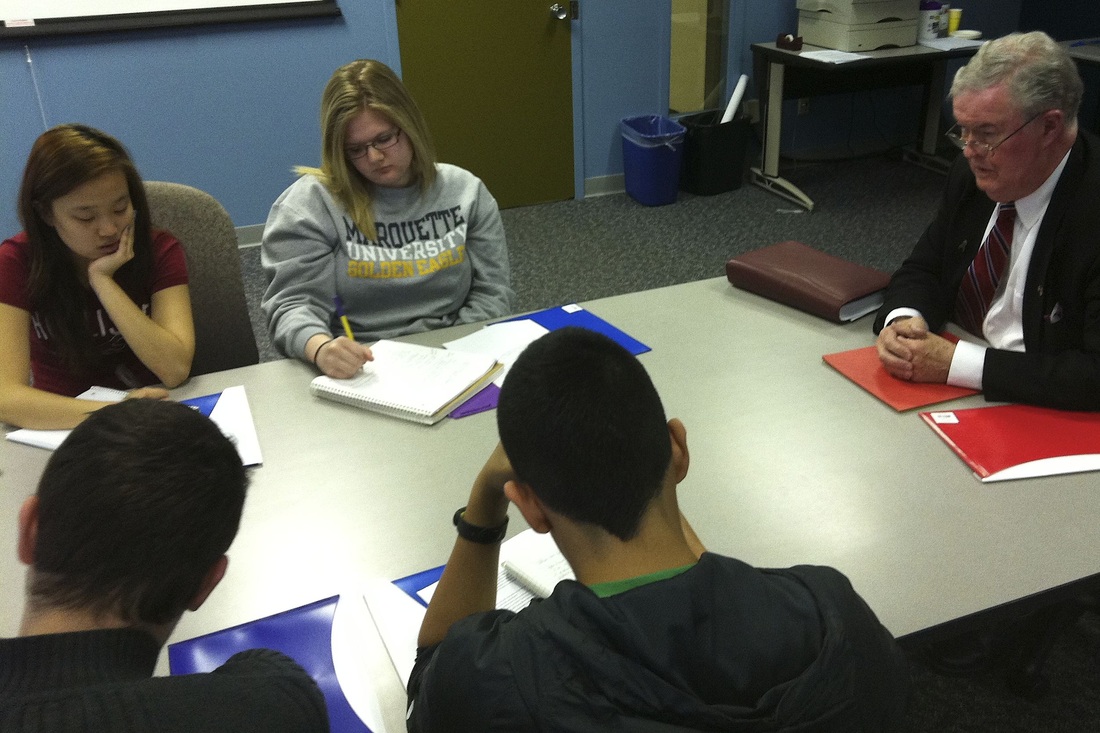A 1960 graduate of Marquette University, Mulvaney has advocated since the early 1980s for more rights and opportunities for job seekers who are at least 40 years old. He believes at-will employment laws discriminate against them and has created a blog at Dequav Inc. to call attention to the matter. My class had reviewed a lengthy written statement and relevant news article that Mulvaney shared before his visit. All 14 students knew they must ask him at least one question, and so they were urged to research the topic beyond his offerings.
Mulvaney spent about 45 minutes with the class and offered plenty of material for a worthwhile news feature. In an email afterward, Mulvaney thanked me for the opportunity to meet my students. "I felt privileged," he wrote. "You have a great bunch of kids in that class and they asked perceptive questions." They most certainly did. The questions ranged from how can young people help make a difference, to what should organizations such as AARP and the NAACP be doing to help, to what other approaches besides his blog could be useful? My favorite question came from freshman Eva Sotomayor, who after saying that economists consider at-will employment one of the strengths of the U.S. economy, looked directly at Mulvaney and asked: "How do you respond to that?"
Interestingly, even though the written statement referred to people whom Mulvaney said the law had led to kill, no student asked him about his personal life. Indeed, no one even asked his age. I had to do so when they were done – he's 78. (My challenge is to teach journalism students that it's not disrespectful to ask personal questions.) By and large, the students shared with each other that they believe Mulvaney is someone to admire.
With that, they all moved to their respective computers to write a 500-word news feature – with me in their ears stressing that readers aren't going to care about Mulvaney's issue unless they are first made to care about him.

 RSS Feed
RSS Feed
